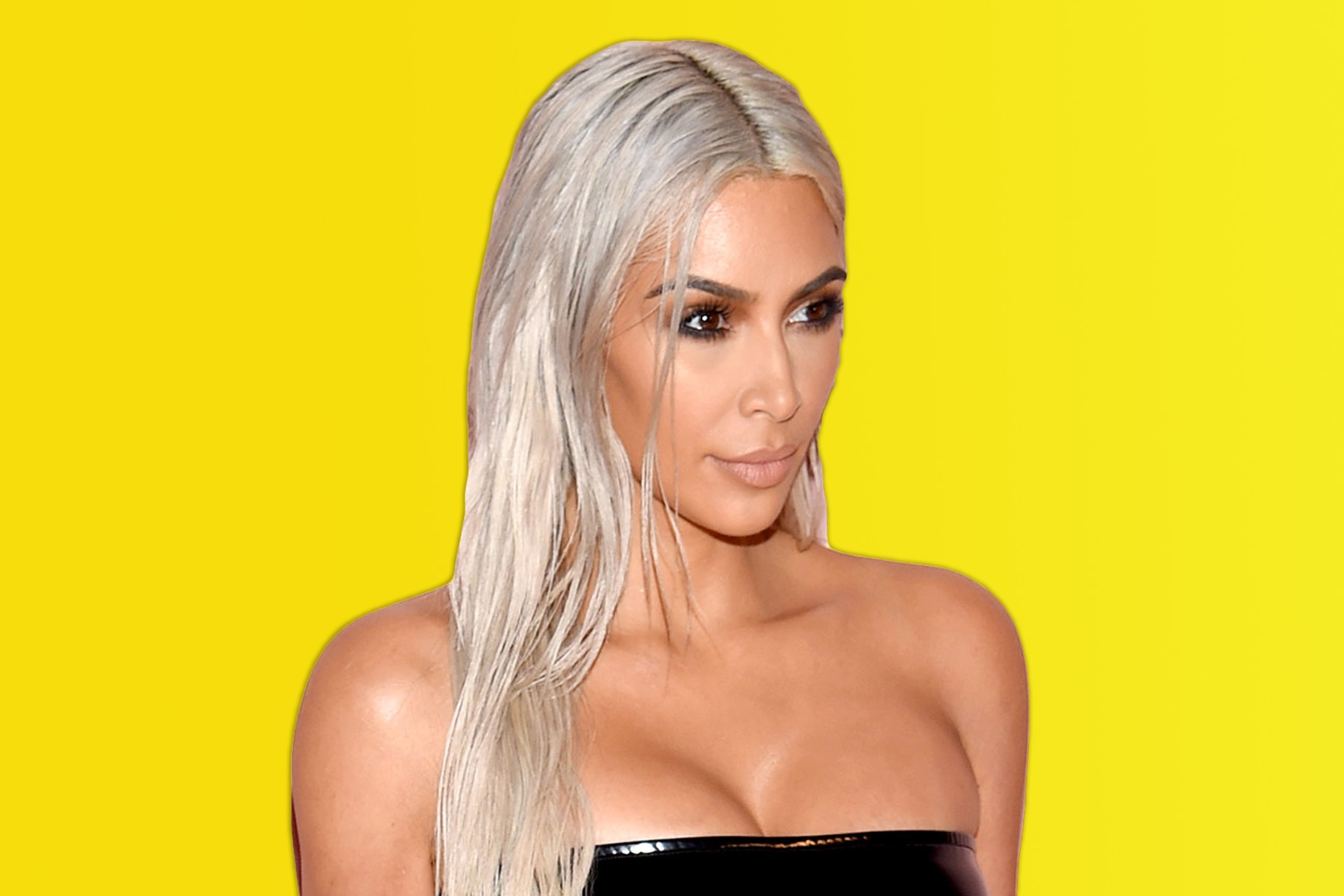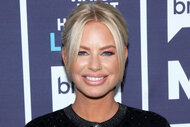
Create a free profile to get unlimited access to exclusive videos, sweepstakes, and more!
Kim Kardashian Is "Proud" to Weigh 116 Pounds — But Her Focus on the Scale Is a Problem, Experts Say
Kim Kardashian has been steadily broadcasting her weight loss for 116 million Instagram followers.

Google Kim Kardashian and the first autocomplete field that shows up is... weight loss. That's because the reality star's been talking bout how proud she is of her recent 20-pound weight loss — "I love it!" — while sparking controversy for appearing to celebrate an "anorexic" look, along with her sisters.
Kim at her previous weight of 140 was toned, tanned, and glowing. Now she's 116 and says she's "really proud." But in the midst of such focus on the scale, experts would remind Kim — and all of her 116 million followers — that skinny isn't everything. Healthy is. And beyond that, the numbers just don't really tell the tale.
The Keeping Up with the Kardashians star told E! News that she dropped the weight by weightlifting and cutting out sugar.
“I work out about an hour-and-a-half every single day, heavy weights. I don’t do a lot of cardio. But honestly, like even my mom pulled me aside maybe a week ago and pulls me in a closet and is like, ‘What are you doing?’ She says, ‘I don’t care what, I just need to know.’ I’ve been working out really hardcore with a bodybuilder for one year. September is our one-year anniversary,” said the 37-year-old. “I’ve lost 20 pounds and I’m really proud of that. I was almost 140 forever and now I’m like 116 and it just feels good. I didn’t see results right away, but when you stick with something and you’re consistent, you will. So, I love it.”
Now, before we unpack this with the help of nutrition experts, let's reiterate that Kim looks incredible — and she looked incredible before, too. It's just that strictly talking about weight in numbers is problematic for a few reasons.
Nutritionist Dana James tells The Feast that Kim can boast about her number if it's a number that makes her feel good. But, she says, keep in mind that Kim "has a responsibility to explain that, at 5 foot 3, 116 pounds may be appropriate for her, but that does not mean that 116 pounds is what other women should aim for."
"Women are all different heights and muscular density and they should base their body-shaping goals on their individual body. For instance, a woman of Kim's height but with an extra 10 pounds of muscle might find that 126 is right for her."
The main problem, James says, is the danger that Kim's followers will take her number out of context: "The flaw is not that Kim announced her weight, but the belief that her number should be the guide for other women," she says. And given how much she commands per sponsored Instagram post — there should be no question that Kim's got plenty of influence. Followers take what she preaches as gospel.
The Feast also spoke to Nikki Ostrower, founder and nutritionist at NAO Wellness in New York City, about basing your entire image — and where you score on the health chart — strictly on the scale.
"The issue with basing your health on your weight in numbers is that an average scale doesn't know the difference between you and a sack of potatoes," Ostrower says. "As in, it's not measuring how much of that weight is fat versus muscle versus bone versus water weight, et cetera. So it's not a great indicator of overall health and can give you the wrong impression."
As most know, muscle weighs more than fat. So say you're trimming up your waistline with your diet and exercise, but your weight has increased a little due to muscle gain. Ostrower says, "that's a great thing."
She adds, "Muscle helps burn fat."
"Also, both women and men fluctuate in weight by number naturally throughout the day, and women throughout the month," she says. "If you are ever weighing yourself just for basic data and tracking, get a quality scale that can measure all of the above including muscle percentage, and only weigh yourself once a week in the morning, same time of day [consistently]."
She goes on to advise that anyone with an eating disorder or body image issues should "ditch the scale" as a rule.
"If it's stressing you out mentally, it's not your best tool," Ostrower says. "I ditched the scale years ago and feel so much healthier mentally and physically. If my clothing fits and I'm happy, I'm doing great."
For women who like tracking weight by the number, Nikki says she only recommends you weigh yourself in the first two weeks of your menstrual cycle (the follicular phase and ovulatory phase), when you "naturally feel your best."
"Avoid weighing closer to your period. Be nice to yourself," she adds. "There's natural weight fluctuation due to hormonal fluctuations during that time of the month. Don't worry yourself. If, however, you are feeling excessive bloat or feelings of weight gain or major water retention pre-period, it's time to speak to a nutritionist to help with your hormonal health. That's not the time to start calorie restricting nor pushing harder at the gym."
Overall, Ostrower says no one should base their idea of "health" on weight at all. Instead, she says, keep track of the following:
Are you pooping at least once a day comfortably?
Are you drinking enough water?
How's your energy and zest for life?
How's your brain function, mental clarity, and spirt?
How do your favorite pair of jeans feel?
Are you highly stressed?
How's your hormonal health — as in, do you experience a ton of PMS or have an easy going cycle and period each month?
"Those questions, amongst others, are telling us how your health and functionality are," she says. "Not a number on the scale."

























